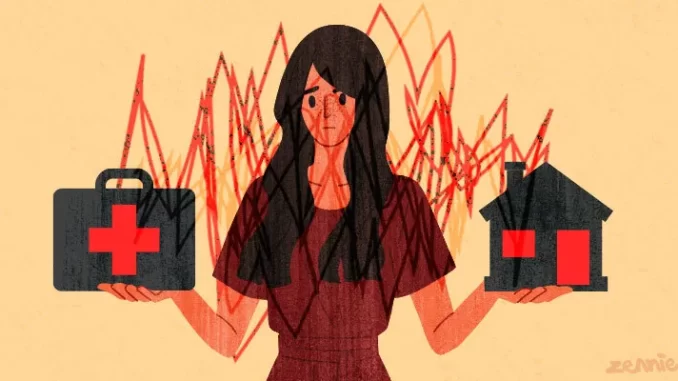
News Angle:
When zooming in on Australia’s housing crisis, people always refer to it as an economic issue. This piece argues that it is also a significant public health emergency in need of attention.
Argument Development:
1.Housing crisis causes numerous psychological distresses that can lead to mental illness.
2. In turn, mental illness/chronic distress impacts an individual’s ability to focus, socialize, and secure work. This creates a vicious cycle that calls for external support.
3. Examine current support frameworks in place. How did officials comment on this issue? What was addressed and enforced? Any visible improvements?
4. What is missing in existing solutions, and what still requires efforts?
5. Social and cultural context framing the housing crisis: How did it make addressing the housing crisis as a mental health issue difficult?
6. Zoom in on specific groups and their difficulties.
Young adults in their early careers.
Minority group (LGBTQIA+, Aboriginal and Torres Strait Islander peoples, other minority ethnic groups)
The Homeless population
7. Conclusion: Restating the argument and call to action.
Platform Choice: The Conversation
The Conversation attracts strong interest from a younger demographic. Its audience values content that is easy to read and understand, relevant and timely, and evidence-based. This commentary will incorporate these qualities to maximise engagement and reach.

Target Audience:
The primary audience is individuals affected by the housing crisis. Most people in this group are comparatively younger.
The secondary audience is essentially anyone who wants to gain perspective on Australia’s housing crisis. This includes policymakers, researchers, advocates, and the general public.
Multimedia, hypertextually, and interactively
- Interactive poll: Is your mental wellbeing affected by the housing crisis?
- Interactive map detailing government & major organization supports across Australia.
- A scrollable album with each page featuring a different individual’s experience with the mental toll of housing insecurity.
- Embed links to official websites, scholarly sources, news articles, and case studies.
- Shortcut for social media sharing.
- Video & photo visualizing data and humanizing the shared experience.
Suggested interviewees:
-Ethnic-minority students at the University of Sydney are struggling to secure affordable housing while balancing study, work, and visa-related issues.
-Mental health therapists at the University of Sydney can offer insight into student housing stress and the strengths and limitations of campus support services.
– Social workers or advocates who can speak to both individual cases and the policy-level strengths and limitations in addressing housing-related mental health issues.
Supporting sources:
Government efforts: HASI, National Housing and Homeless Plan, Ahuri Policy Research, Mental Health Workshop, Housing Support, Mental Health System
NousGroup & TUOQ: propose improvements on policies.
NSW Labor’s 20 million investment in mental health housing
Academic study: mental wellbeing predicts income.
Amnesty International: housing as a human right in relation to international laws
Crikey: government spending & health costs of the housing crisis
Ahuri, CityHub, Mental Health Australia, PubMed: relationship between mental health, housing, and homelessness
ABC: interview & real experience of people in the housing crisis



Be the first to comment